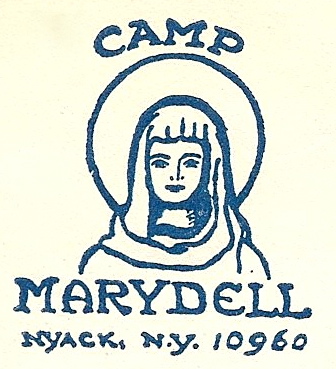by Joanie Butman
I left a recent viewing of the poignant film Philomena overwhelmed by a plethora of emotions it evoked in regard to the nuns of my youth: guilt, shame, but most shocking was an intense hatred. I know, strong words but true. Righteous anger might be a better, and certainly kinder, choice of words. I know there are probably generations of people who harbor similar feelings. I didn’t even realize they existed until this movie brought them bubbling to the surface from some hidden reservoir of pain. I believe the nuns I experienced and the ones portrayed in the movie are close to extinction, and none too soon for me. I know they were trying to rescue me from my own sinful nature, but the only thing they succeeded in doing was convincing me I was hopeless and driving me away from the church and the only One who held the power to save me.
My life-long aversion to nuns began as a six-year-old during my first stint at sleepaway camp – run by nuns of course. My mother had sent me with the teddy bear with which I slept. It was soft and cuddly with the latest ‘technology.’ You could wind it up to play soft, lullaby music. My first night there, one of the nuns confiscated it and told me I was “too old” for that. I never saw it again. I can still remember my helplessness and bewilderment as to why she would deny a little girl away from home for the first time this small comfort. No wonder this woman totally clad in black – and all those I associated with her – became the proverbial wicked witches of my childhood.
How disheartening that the very women who took vows to lead others to Christ failed to share His love with those entrusted to their care. No, theirs was a model of shame – a popular teaching method of prior generations. Instead of graduating from their tutelage embracing God’s unconditional love, I spent the next thirty years chasing what I’d had all along, wearing myself ragged trying to earn back my worthiness – something Christ had done for me long before I was even born. What a waste of time and effort.
There is nothing healthy about living under the burden of sin and shame. I remember one particular incident that remains burned in my brain. My face still flames with humiliation. It was 7th or 8th grade, and I got caught passing a note to a friend. The intercepted document contained one of those silly ‘sex’ quizzes published in Sixteen, TEEN or Ingénue, the magazines of choice for young girls at the time. It was something about kissing and bases and whatnot, nothing shocking by today’s standards but enough at that time to brand me the Mary Magdalene of my school. (Who, by the way, despite what the nuns taught me was NOT an adulteress. Poor thing’s only crime was being possessed by demons, which could have described many a nun in my day.)
I was promptly ensconced in the corner staring at the wall with my back to the class, under the statue of Mary, while the entire school prayed for my sorry soul, which was hanging by a thread over the fires of hell. I kid you not. They stopped the school day and announced the need for prayer on my behalf over the public address system. They might as well have taken me out to the schoolyard and stoned me. In fact, the scars that incident left were far more lasting than any stone would have created. I suppose at some level believing I was already doomed to a path that led directly to hell, I decided I might as well enjoy myself on the way down – and I made the most of it.
To this day, their influence is so ingrained in my being I find my Catholicism popping up instinctively. For example, I was sitting in the front pew of a Congregational service a couple of weeks ago and noticed a woman on her way up to communion chewing gum! My ‘nunsense’ kicked into high gear as I whispered to my friend and warned her to lean back so we would be a safe distance from the lightening bolt that was sure to come and strike this woman down as she put her hands out to receive. Apparently, the Congregational church is more lenient with that type of transgression.
Once when I got my times confused I arrived at the tail end of the earlier service. I walked in just as communion was being served and sat in the lobby enjoying a cup of coffee while waiting for the next service. As the pastor walked down from serving the balcony communion, he offered it to me. Aghast, I looked at the coffee in my hand and replied with horror, “I’m drinking coffee. I can’t.” Clearly befuddled he tried again. I just couldn’t do it. I hadn’t fasted for an hour. I don't even know if that rule still exists or whether it went the way of the no meat on Friday edict. Yes, the lessons of our youth are hard to shake. I just wish the ones the nuns instilled were of a more loving, redeeming quality. Judgment and condemnation don’t make for pleasant traveling companions.
Even with all that said, some of my best childhood memories were of my camp years. Not the one with the teddy-snatching nun but Camp Marydell, a Catholic camp run by nuns where I spent portions of the next six summers. As I was reading some of the letters my mother kept, there are hints that those nuns had their moments as well. A quote from a letter when I was eight or nine states, “We got in trouble today because a girl in my cabin made us laugh at the table. The nun said if you don’t keep quiet, you’ll eat lunch in the yard!” Who knew that laughter was one of the seven deadly sins – must have been during the benediction. Come to think of it, many of the incidents for which I was condemned during grammar school involved excessive chatting or laughing. Those nuns would be rolling in their graves if they knew where I progressed from there.
Back to Philomena. The most powerful lesson I learned through the film was forgiveness. It was long past the time to choose to put those nasty feelings toward the nuns (and by association the Catholic church) to rest. While it took me a few days to process and fully embrace the message, Philomena taught me about forgiveness, reconciliation and something I never expected – compassion for those nuns. Why? Because only someone who never experienced God’s love could treat others, especially children, with such bitterness and cruelty. You can’t share what you don’t have. How sad to choose to spend your entire life in a vocation such as theirs and somehow miss God’s love amidst all their rules and regulations. That to me is the true tragedy.
Only days after seeing the movie, I watched as the real Philomena met with the Pope completing her long journey of forgiveness and reconciliation. Following her audience with Pope Francis Philomena commented, "He really made me feel so good inside because I carried the guilt inside me for 50 years without telling anybody." She also showed her lighter side by claiming, “Those nuns would be jealous now.” Despite her cruel treatment at the hands of the nuns, Philomena remained a life-long Catholic. The real testimony to her faith and the message she chose to share with the world is, "You can't go through life being so unyielding...so you've got to forgive. You've got to. You just have to forgive."
I don't know whether the film will win any awards at the Oscars tonight, but Philomena's generosity of spirit will reap rewards far more lasting and meaningful than anything the Academy could offer. Philomena Lee is an inspiration to all of us that as hard as it may be sometimes, the wise choice is always love and forgiveness.









